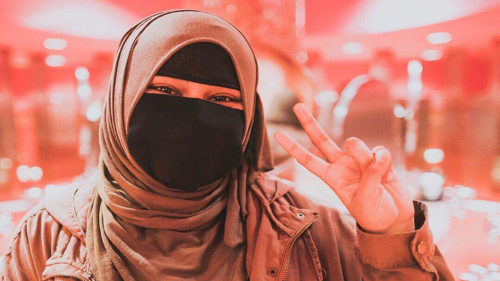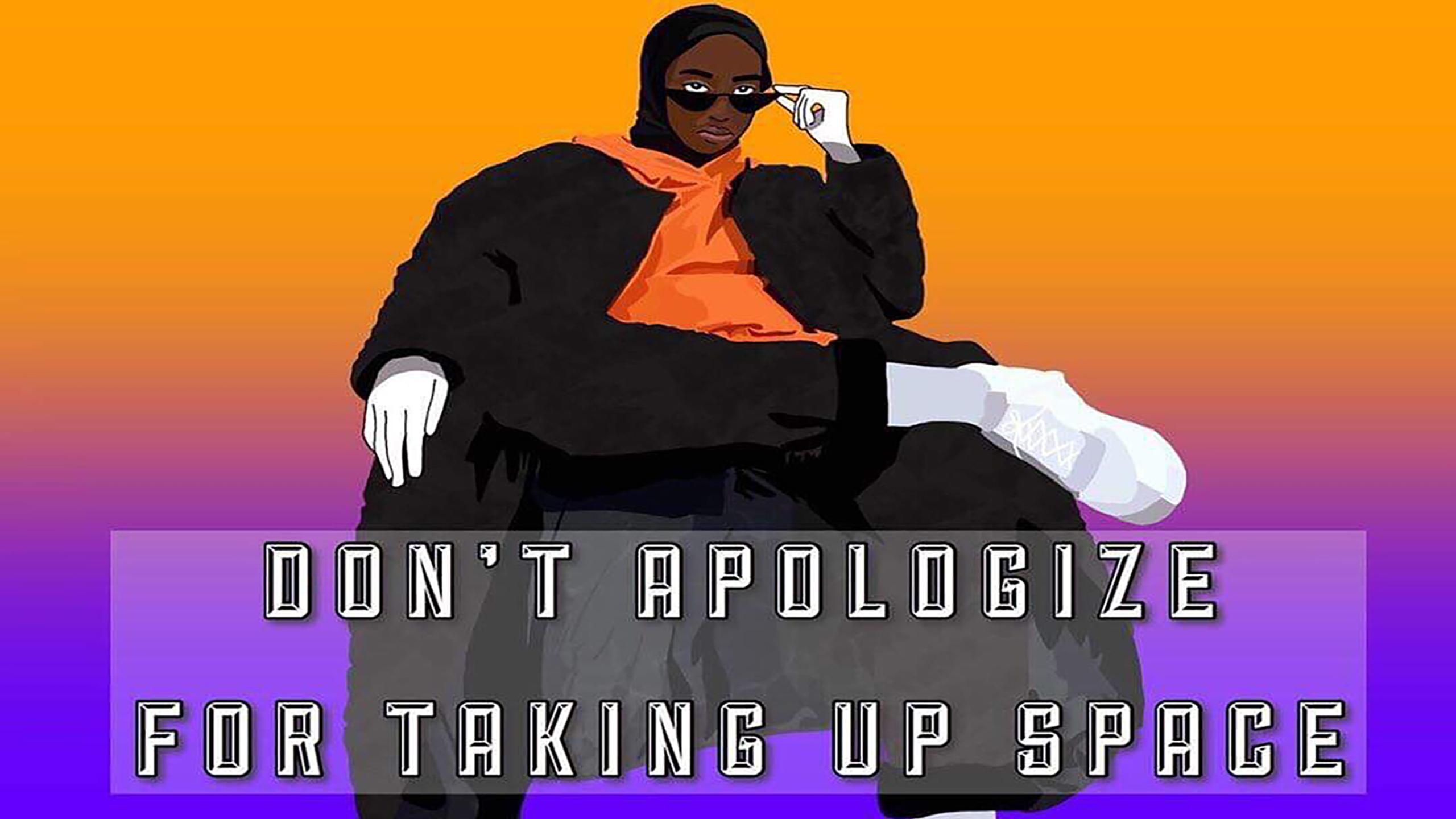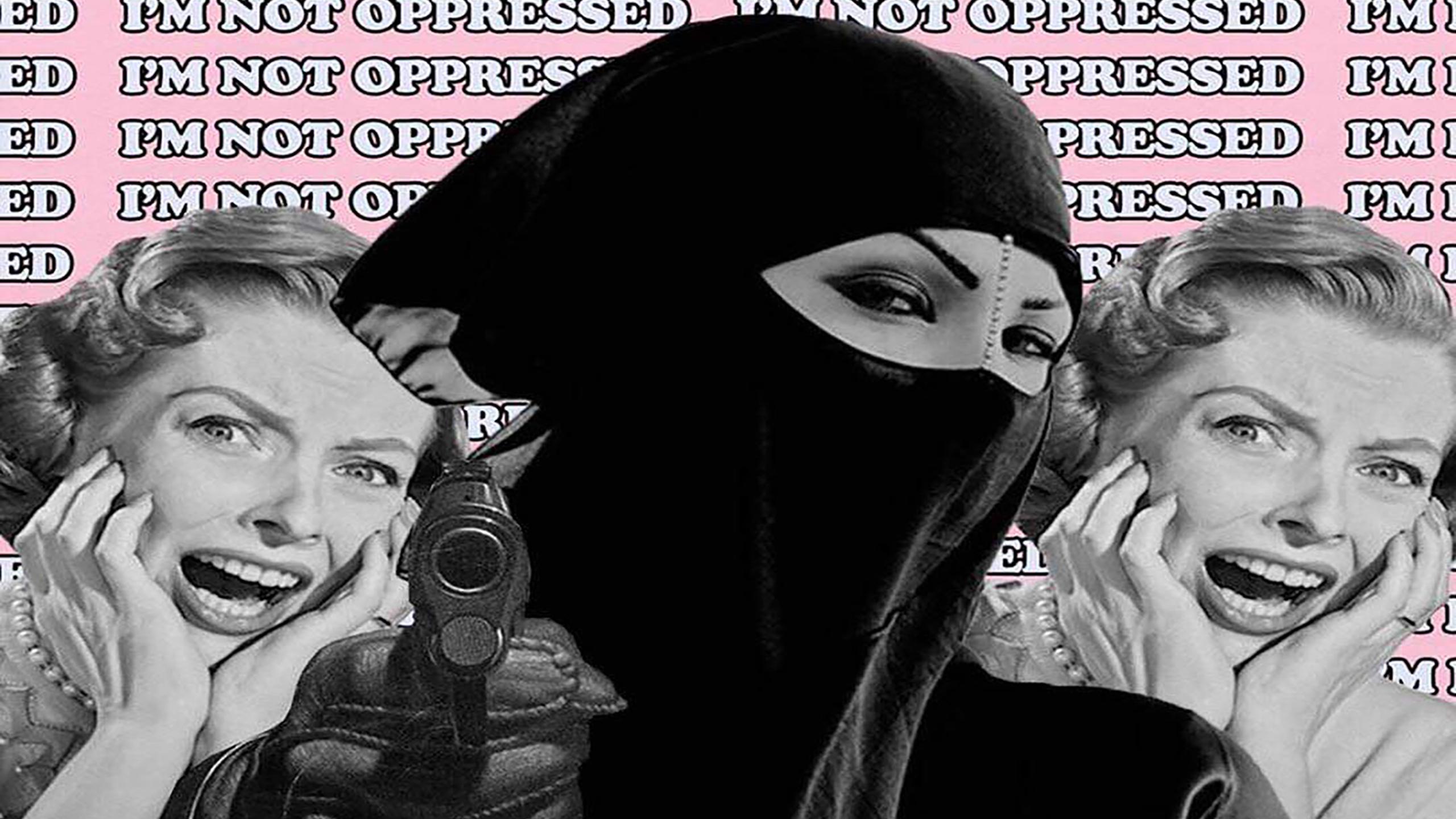By Dhriti Gupta
Third-year contemporary arts student Aima Warriach is changing the Islamophobic narrative around Muslim women and non-binary people with her empowering graphic art. Combining activism and art, Warriach has amassed almost 15,000 followers on her Instagram account, @niqabaechronicles.
Most recently, her work has been awarded the Toronto Artscape Launchpad Bursary, allowing her to experiment with different resources and expand her creative portfolio.
Warriach began creating artwork two years ago when she joined a Facebook group called “Haram memes for Jahannam minded teens,” where members could share culturally-related memes. However, Warriach and a few others in the group started to feel that the discourse in the group was toxic and exclusionary to women and non-binary people. That led them to start their own group, “Muslim Womxn,” the x signifying the inclusivity of those outside the gender binary.

Encouraged by others sharing their artwork in the group, Warriach started making her own collages using Photoshop, where she would clip and rearrange images to relay a powerful message. One of the first pieces she made depicts a woman wearing a niqab overlayed with the words “I ain’t your habibti,” targeting the widespread fetishization of Muslim women who choose to cover themselves.
“Half the time, people aren’t exposed to Muslim women who openly discuss their struggles and their journey to reconciling their intersectional identities,” Warriach said.
Not only did she receive words and messages of support from other group members, but creating work that fought gendered Islamophobia was also therapeutic for Warriach. In high school, some of her friends criticized her choice to wear the niqab. Through her artwork, she challenges these rigid stereotypes, validating others within her community who are stigmatized.
“I’m a minority within a minority,” she said. “I really can’t depend on anybody but myself to change the narrative, especially when the narrative is so misconstrued.”
With support from her group members, Warriach went on to create a home for her visual art on Instagram. As she developed her artistic style, she began to use Procreate, an iPad app used for digital illustration. As her reach expanded, she also noticed people reposting her work without credit under the guise of ‘exposure.’
Organizations and individuals with large followings like the Women’s March and Linda Sarsour have shared her graphics without attributing her. Warriach emphasizes how this is a major problem for online artists.
“Exposure doesn’t really relate into social capital,” she said. “I’ve already amassed a modest platform where I can promote myself, I don’t really need to rely on other people. I only rely on my audience engagement and support.”
Warriach hopes people start taking a more active stance when it comes to attribution and compensation for artists. She said people expect racialized artists to constantly retraumatize themselves in their work for little to no benefit. “Emotional labour isn’t free.”
“Not a lot of people invest in Muslim creators and expect us to do all this labour for free,” she said. “Nobody would treat a white woman or a white man like this.
When it comes to how she perceives her own success, Warriach doesn’t measure it in likes or shares but through the dialogue it creates. She said her main goal is to get people questioning what they know. When people respond to her work in the comments or voice their feelings on their stories, she knows she’s done her job.
“If it’s just people reposting and no comments, then it’s probably something that’s already been regurgitated, or I didn’t really add a new spin to it.”
With the new studio space available to her through the Artscape bursary, she hopes to break down what constitutes a “liberated Muslim woman.” Warriach is working on a series that focuses on Muslim women using the digital space to create their own narrative through things like modest fashion, activism, and art.
She emphasizes that Muslim women only seem to receive recognition when they go to “astronomical lengths.” The context of their success is always despite their hijabs or despite their religious beliefs.
“Limited toleration is prejudice as well,” she said. “You can assert your agency while writing your essay, getting an education. You can assert your agency when you’re at your job. Or when you just want to chill at home, not give a shit about what’s happening in the world, you’re still valid.”

To see more of Aima Warriach’s work, follow her on Instagram.










Leave a Reply